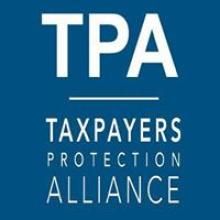Taxpayers Protection Alliance Trolling Vinton, Iowa
Vinton, Iowa, is on the road to Internet access self-reliance as the community of about 5,100 people continue to move forward with their Fiber-to-the-Home (FTTH) project. They’ve come under attack, however, from the Taxpayers Protection Alliance (TPA). The group is part of a web of organizations aimed at increasing corporate dominance and corporate concentration of power. TPA sent a letter filled with the usual twisted anti-muni spin, but this time went a step farther. A TPA senior fellow mischaracterized a quote from one of the industry’s most respected experts in order to push their harmful agenda.
Former State Representative Chip Baltimore did not run for re-election last year and now fills his days trying to prevent competition for the large incumbent ISPs. His methods include interfering in local communities’ decisions to improve connectivity. In an attempt to undermine the project and frighten community leaders out of supporting it, Baltimore sent a letter to Vinton Municipal Electric Utility Board Members in February.
The letter included several overused fallacies that permeate TPA literature and in other letters we’ve seen directed to decision makers in other communities. Baltimore also included a quote from Joanne Hovis from CTC Technology & Energy. The quote applied to take rates in another part of the country far away from Vinton.
Farr Technologies, the consultants that performed the feasibility study for Vinton, estimated that iVinton could achieve take rates of 40 percent in the first year and grow to 62 percent within five years. Baltimore tried to use Hovis’s statement, which applied to a different community, to discredit Farr’s estimate. It’s true that these rates appear high, but folks in Vinton have shown that they believe the electric utility can provide better service than incumbents Mediacom or CenturyLink. Farr’s consultants considered the community’s survey results, expressions of dissatisfaction with current incumbents, and the electric utility’s stellar reputation with customers when estimating future take rates.




